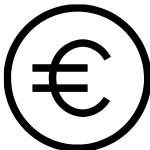Production Engineering




Tuition

Duration

Admissions Deadline

Location
Profile
The aim of the academic Master study programme “Production Engineering” is to provide in-debt theoretical knowledge, to develop research skills and prepare high level specialists in the sectors of engineering production and sciences of machines, as well as prepare students for further Doctor level studies.The programme comprises subjects of fundamental sciences, as well as special field subjects in two specialisations: Apparatus engineering and Mechanised production and control. Sub-directions of the programme serve as an academic basis for Doctoral studies and studies in related branches, for independent scientific and applied research work, career growth of the teaching staff.Career OptionsAfter studies graduates can continue studies in the doctoral programmes or work in companies as leading specialists, for example, in companies engaged in computerised designing, production, adjustment, servicing and repair of products or mechanical engineering and metal constructions, mechanical equipment and technical devices, products.
Map
Sorry, no records were found. Please adjust your search criteria and try again.
Sorry, unable to load the Maps API.
Admissions Requirements
Applicants should have a bachelor's degree with a major in Medical Engineering and Physics or comparable education in Engineering Science and Technology, and in Natural Sciences. Application deadline for non EU students is August 1.
Related Programs
Program Information
Riga
Latvia
LV-1050
Latvia
- 2 years
- Full Time
- On Campus Learning
Additional Information
Considerations
